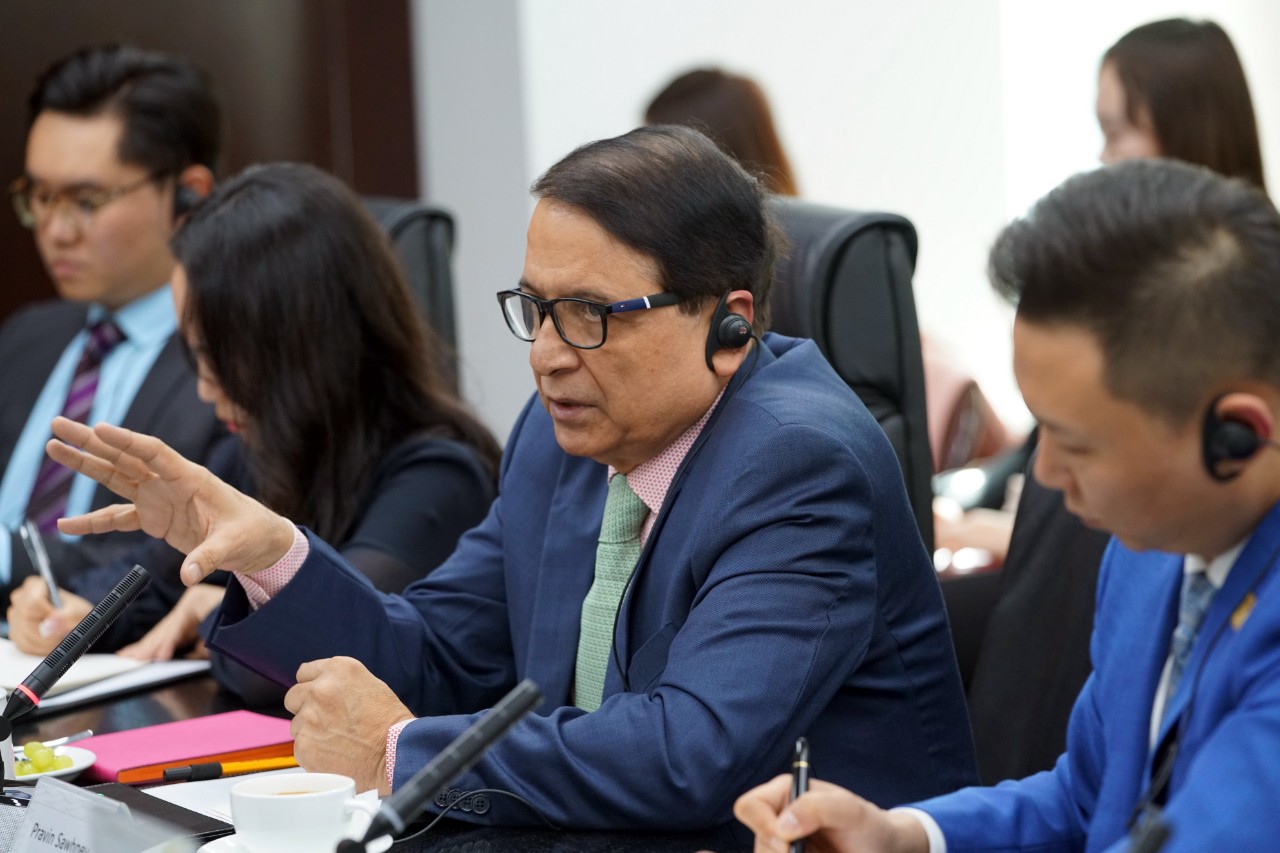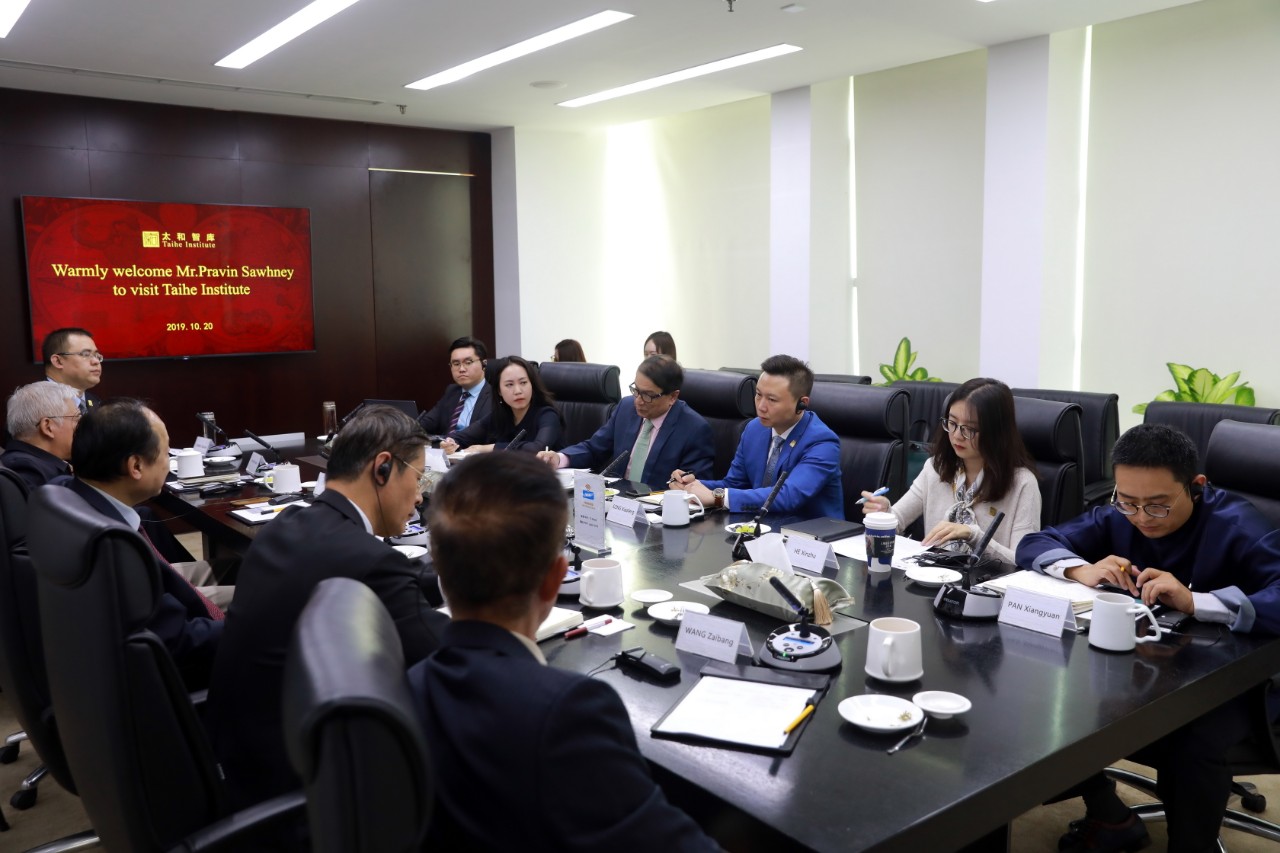
Mr. Pravin Sawhney
Introduction: A visit to Taihe Institute by Mr. Pravin Sawhney, the chief editor of the top Indian military magazine, FORCE.
As an eminent strategic analyst and visionary writer, and a former major in the Indian army, Mr. Sawhney has more than a decade of experience in the military, with his views on regional security from a military perspective.
During the meeting, Taihe researchers and Mr. Sawhney communicated their thoughts and ideas candidly, in-depth, fully and effectively around topics including China-India political, economic and military relationships, China-India cultural and people-to-people exchanges, the indo-pacific strategy of the United States and other broad issues of common interest during the symposium. Mr. Sawhney expressed the following main points in his keynote speeches:
1. Many Indian policy makers still view China as a threat and are wary of it with the cold war mentality in mind. However, India should seek strategic convergence and strengthen bilateral collaboration with China as well as maintaining a sound relationship with its neighboring countries. Only in this way may India truly rise up.
2. Disputes on border issues exert the most direct impact on the China-India relationship. Given that border disputes are hard to be resolved within a short period of time, China and India should overcome the contradictions between them, curb ultra-nationalist tendencies, and treat and understand the China-India relationship more from a strategic rather than a tactical perspective.
3. People-to-people and cultural exchanges between China and India play a key role in promoting the relationship between the two countries. Nevertheless, this has not received due emphasis at government level. Cultural and people-to-people exchanges between China and India should be treated as strategic initiatives acting as a key point for realizing the strategic integration of China and India. If China and India want to break the deadlock, both countries need to engage in more multi-track interactions, and private think tanks should play an important role in this process.
4. Geopolitics is a combination of geography and politics. If India wants to achieve its rise, it should face up to the reality of geopolitics and commit itself to building sound relationships with its neighbors. Furthermore, India should strengthen the study of geopolitics and act proactively to improve China-India relationship. Meanwhile, Mr. Sawhney believes that the Belt and Road Initiative is a very grandiose project. Although there may exist certain issues that need to be resolved, the Belt and Road Initiative is of great significance for the economic development of the countries along the Road.

Symposium
The just concluded second informal meeting between Chinese and Indian leaders provides a new opportunity for the development of China-India relationship. Taihe Institute will reinforce our academic research and communications in the direction of India, and will contribute our wisdom as well as strength to the sound development of the China-India relationship and the mutual trust of the two countries.
—————————————————————
FOCUS ON CONTEMPORARY NEEDS.
Should you have any questions, please contact us at public@taiheglobal.org